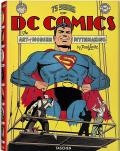A Paradox of Geek Fandom
Last week I sat in on a discussion with Paul Levitz, former President at DC Comics, at MIT’s Media Lab. (The door to the building said I had to have an MIT identification to enter, but I rode up the elevator with Levitz and helped him find the auditorium, so I figured I deserved to stay.)
Levitz started at DC Comics as a sixteen-year-old freelance writer and editor, and is still scripting comics. From 1976 to 2009 he took on increasing internal responsibilities, spending the last seven years as President. Having long functioned as a big part of the corporate memory, he recently wrote a gigantic history of the company.
Among other observations at MIT, Levitz said that “geek culture” has overtaken “pop culture.” That reflects the popularity of videogames and of superhero and science-fiction movies and TV shows, of course, but it also speaks to a certain style of consuming entertainment.
I asked Levitz for his thoughts about one paradoxical aspect of “geek culture.” On the one hand, that form of fandom is very interested in seeing the process of storytelling:
And yet “geek culture” is also marked by a fervid, sometimes rabid, protectiveness about those stories and the characters in them, as if they were real or deserved to be. Fans want to guard their favorites from the very companies and people who have the assignment of keeping them alive.
Levitz could only reply that part of his job as a DC executive was to warn people adapting the company’s properties to other media when they were straying too far from the characters’ “core.” He found that he couldn’t define in advance what would raise most fans’ protective responses, but he knew it when he saw it. And that emotional attachment remains, still hard to map but perilous to cross.
Levitz started at DC Comics as a sixteen-year-old freelance writer and editor, and is still scripting comics. From 1976 to 2009 he took on increasing internal responsibilities, spending the last seven years as President. Having long functioned as a big part of the corporate memory, he recently wrote a gigantic history of the company.
Among other observations at MIT, Levitz said that “geek culture” has overtaken “pop culture.” That reflects the popularity of videogames and of superhero and science-fiction movies and TV shows, of course, but it also speaks to a certain style of consuming entertainment.
I asked Levitz for his thoughts about one paradoxical aspect of “geek culture.” On the one hand, that form of fandom is very interested in seeing the process of storytelling:
- comics collections often include early sketches, scripts, and creators’ discussions of roads not taken. We rarely see that in novels.
- DVDs feature deleted scenes, commentary tracks, outtakes, and other peeks into the creation of the movies or TV shows they document.
- TV “show runners” are becoming celebrities with their own following.
- the moviegoing/viewing/reading/gaming public follows the creation of a new piece of entertainment earlier than ever; news that used to be restricted to the industry is now spread everywhere.
And yet “geek culture” is also marked by a fervid, sometimes rabid, protectiveness about those stories and the characters in them, as if they were real or deserved to be. Fans want to guard their favorites from the very companies and people who have the assignment of keeping them alive.
Levitz could only reply that part of his job as a DC executive was to warn people adapting the company’s properties to other media when they were straying too far from the characters’ “core.” He found that he couldn’t define in advance what would raise most fans’ protective responses, but he knew it when he saw it. And that emotional attachment remains, still hard to map but perilous to cross.



No comments:
Post a Comment